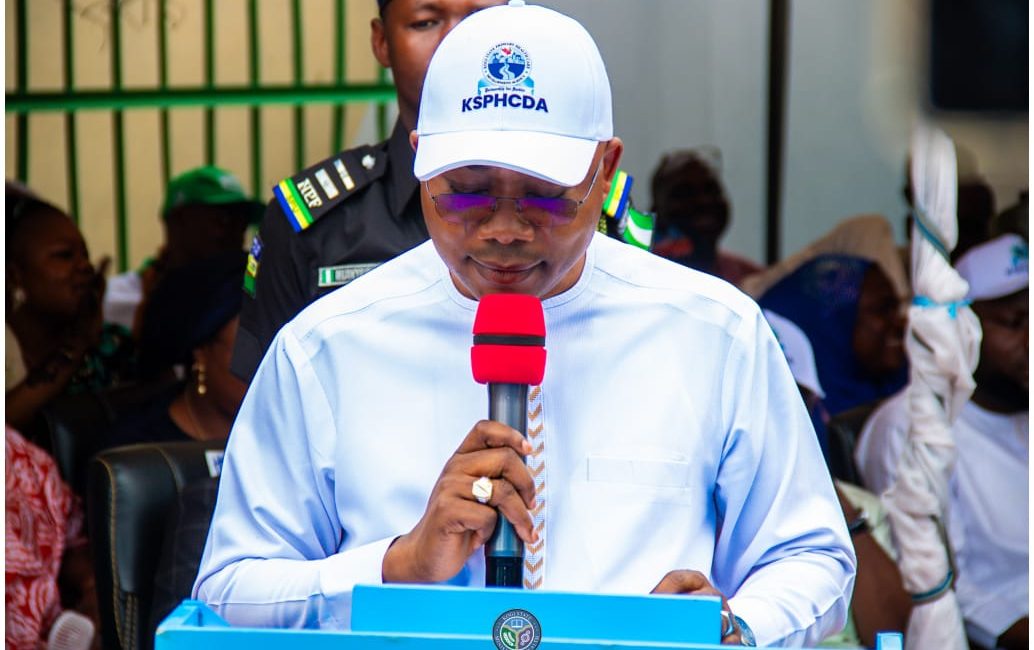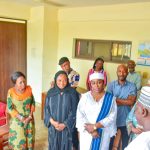
Step into the remarkable journey of Gov. Ododo as we explore his transformative peace initiative—a quest that promises not just to restore harmony but to conquer the challenges that have long plagued our communities. Join us as we take a closer look at this inspiring agenda!
Upon assuming office, His Excellency Alh Usman Ahmed Ododo, the Governor of Kogi State, faced the significant task of promoting good governance in the state—aiming not just to match, but to surpass the achievements of his predecessor.
One of the major challenges in Kogi State was maintaining peace. Globally, the concept of peace, understood as the absence of hostility and violence, is under serious threat. As Mahatma Gandhi once said, “an eye for an eye only ends up making the whole world blind.” Without peace, security becomes elusive. Therefore, peace emerged as a central focus for Governor Ododo’s administration.
To foster lasting peace, the Governor implemented various strategic measures. One key approach was to strengthen traditional institutions, especially in areas plagued by crisis.
The traditional institution has always been very important to Governor Alhaji Usman Ahmed Ododo, as traditional rulers are key partners in the quest for peace. As a responsive governor, he strives to meet the needs of communities, fostering a sense of belonging through the traditional institution by creating new traditional stools in response to requests from communities, especially smaller clans that might otherwise face marginalization. Having a recognized leader to be accountable for maintaining peace in each clan or community makes governance more effective. Some of these traditional stools include the Ohireba Anebira of Lokoja, Onoba-Obanyin Anebira, Ohi Ekura of Osara, and Onu Bagana in Omala.
In line with community pleas, Governor Ododo restored the Onu-Ife (Ojogba), who had been suspended for misconduct during the administration of former Governor Yahaya Bello.
The common thread in all the conflicts resolved by Governor Ododo’s administration is dialogue. Reflecting the words of Albert Einstein, a German-born theoretical physicist, “Peace cannot be kept by force; it can only be achieved by understanding.” Dialogue has been central to the peace initiatives under Governor Ododo’s leadership. Warring communities, stakeholders in chieftaincy disputes, restless youths, and disgruntled individuals within local government settings are invited to meetings with the Ministry for Local Government and Chieftaincy Affairs, which is overseen by the Commissioner, Barr. Salami Momodu Ozigi Deedat, at the request of the Governor.
During these meetings, issues are discussed, concerns are addressed, and all parties leave satisfied and pacified. This is the result of dialogue, coupled with strategy, diligence, and commitment.
A notable example is the Bagana crisis. This conflict, which erupted from a brawl between two clans, persisted for decades, leading to years of fear and bloodshed. The Otutubatu clan from Omagede and the Ihankpe clan from Patayin, with their traditional rulers residing in their palaces on Bagana soil, were entrenched in hostilities over the Bagana territory, which lies between their communities within the Omala Local Government Area.
As part of the efforts to mitigate the crisis, Governor Ododo created distinct traditional stools and established a Forward Operating Base (FOB) in Bagana to maintain peace and order. The numerous inquiries and dialogues initiated by the state government regarding the Bagana crisis have yielded positive results, with residents who had fled now returning to their homes.
The Obadofin of Oweland was appointed after a prolonged conflict threatened to turn Oweland into a battlefield. This potential unrest was averted thanks to the prompt intervention of the Governor, who directed the Commissioner for Local Government and Chieftaincy Affairs to oversee a meeting that successfully quelled tensions. The Ajepe Ogbani Sepa chieftaincy stool tussle nearly destabilized the traditional institution in Osuku, Kogi State, but Governor Ododo decisively resolved the dispute. Other chieftaincy conflicts that have been successfully addressed include the Ogaguwa of Upopuveteochogu in Ogugu, Onu Echeno, Onu Igalaogba, Anajagaku-Ganaja, Ogohi Alo, Ochai Onu-Ife, and Wgwola Attah Igala.
Barr. Salami Momodu Ozigi Deedat, during various meetings with traditional rulers and local government chairmen, urged them to act responsibly towards their subjects and remain loyal to constituted authority to achieve peace and security. He reiterated Governor Ododo’s zero tolerance for violence, whether in speech or action.
For every cause, there is an effect. Investors and partners are flocking to Kogi State to pursue opportunities that will have a positive ripple effect on the economy and society. For instance, partnerships in agriculture and mining with China’s Hunan Province and collaborations with the Nigeria Incentive-Based Risk Sharing System for Agricultural Lending (NIRSAL) are expanding access to agricultural finance for economic growth, among other initiatives.
Indeed, peace has its benefits!
The quest for lasting peace continues. During the inauguration of the Presidential Community Engagement Peace Initiative (PCEPI) in Kogi State, Abiodun Essiet, the Senior Special Assistant to the President on Community Engagement (North Central), stated, “Building social cohesion is not a one-off event; it is a continuous journey that requires unity, openness, and solidarity. When no one is left behind, development becomes sustainable, and peace endures.”
Governor Alhaji Usman Ahmed Ododo has declared that he will not rest on his laurels.




